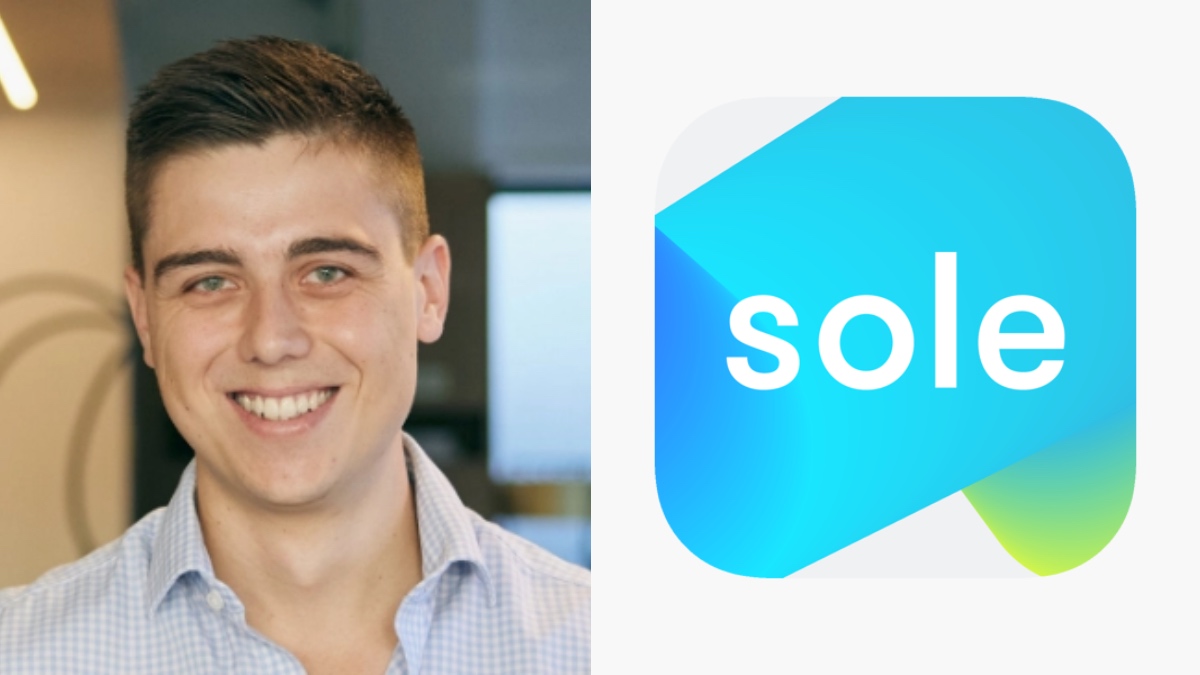Competing with giants like Xero, MYOB, and QuickBooks, we may not have their big budgets, but instead of spending on ads, we’ve focused on building a strong user community and letting word-of-mouth do the work.
Johann Oberholzer
Johann Oberholzer saw a gap in the market and took action. In 2018, he founded Sole, a Brisbane-based accounting platform designed specifically for sole traders and microbusinesses.
With over 10,000 downloads and recognition as one of the fastest-growing sectors in Australia’s economy, Sole is changing the game for small business owners. Born from Johann’s deep understanding of the struggles sole traders face, Sole is a user-friendly, affordable tool that takes the stress out of managing finances—allowing entrepreneurs to focus on what they do best.
We sat down with Johann to discuss his journey and the vision behind Sole in this week’s edition of Founder Friday.
The beginning
Johann Oberholzer founded Sole after witnessing a close friend’s struggles with financial admin. His friend, a small trade business owner, was overwhelmed—juggling receipts, missing invoices, and constantly battling cash flow uncertainty. The ATO demanded order, but with a business to run, bookkeeping was the last thing on his mind.
Realizing this wasn’t an isolated problem, Oberholzer saw a gap in the market. “Thousands of sole traders were in the same boat—great at their trade, terrible at tracking their money,” he explains. Existing accounting software felt either too expensive, too complex, or both. That’s when he decided to take matters into his own hands.
“I did what any stubborn entrepreneur would do: I built Sole,” he says. Designed to ease financial stress for sole traders, Sole simplifies cash flow management and ensures ATO compliance—without requiring a degree in accounting.
Simplicity wins
We wanted to be the most affordable game in town
A few key decisions helped Sole punch above its weight, according to Johann. Simplicity was the first priority—sole traders don’t need an accounting degree; they just want to get paid on time and stay on the ATO’s good side. “We stripped away the fluff and made everything dead simple,” he says. Another game-changer was pricing. While most platforms charge upwards of $60 a month, Sole set its price at $14.99.
“We wanted to be the most affordable game in town,” Oberholzer explains. Listening to users also played a huge role. Unlike many competitors, Sole built its roadmap based on direct feedback from real sole traders. “Radical, I know,” he jokes, adding that real-world insights trump industry assumptions.
Instead of pouring money into expensive ads, the company focused on partnerships with accountants and bookkeepers. “Turns out, they love anything that makes their clients less of a mess,” Oberholzer notes. And finally, Sole had to be foolproof. “No offence—admin sucks for everyone,” he says. The goal was to make onboarding so seamless that sole traders could start using the app in minutes, no training required.
The startup struggle
Most accounting software treats sole traders like miniature corporations, but Johann made sure Sole did the opposite. “We know they’re flying solo, juggling ten things at once, and just want to keep the ATO happy,” he says. That understanding shapes everything about Sole. Unlike traditional platforms designed for finance professionals, its user experience is built for everyday people who don’t care about accounting—just getting paid and staying compliant. “Our UI/UX is built for normal people, not finance nerds,” Oberholzer explains.
Affordability is another major differentiator. At $14.99 a month, Sole is a fraction of the cost of bigger names but without cutting corners. “We’re cheap, but not dodgy,” he adds. Innovation also moves faster at Sole. Instead of slow, corporate-style updates, the company quickly rolls out features based on real user pain points.
“Big software companies take years to roll out updates—Sole does it in months,” he says. And while calling accounting fun might be a stretch, Sole at least makes it less painful. “We don’t bore you to death,” Oberholzer jokes. The brand’s human tone ensures that dealing with finances doesn’t feel like a punishment.
How sole innovates based on what users actually need
Johann has faced plenty of challenges building Sole—where to start? One of the biggest hurdles was convincing sole traders to change their habits. “Nobody likes change,” he admits. Many were stuck on spreadsheets or, worse, just guessing their numbers. To make switching painless, Sole focused on an ultra-simple onboarding process and top-notch customer support.
Then there was the competition. Going up against industry giants like Xero, MYOB, and QuickBooks—companies with deep pockets—was no small task. “We have common sense,” Oberholzer says, explaining how Sole skipped expensive ad campaigns in favor of building a strong user community and relying on word-of-mouth.
Cash flow was another tough lesson. Bootstrapping the business meant Oberholzer had to wear multiple hats—developer wrangler, marketer, and sometimes even a therapist for stressed-out users. “Only spend money on what truly moves the needle,” he says, a lesson learned the hard way. Understanding how busy sole traders are also shaped Sole’s approach.
“They don’t have time to learn a complicated system,” he says, which is why the app is designed to be as intuitive as ordering a coffee—tap, tap, done. But the biggest takeaway? “Listen to your users,” Oberholzer emphasizes. Every time they assumed they knew best, they were wrong. The more they built based on real-world feedback, the better Sole became.
Why perfection can wait
If your business isn’t fixing something painful, you’re just making noise
For Johann, the best business advice is simple: solve a real problem. “If your business isn’t fixing something painful, you’re just making noise,” he says. He also believes in starting lean—your first version doesn’t have to be perfect, just functional.
“Your MVP should work, not win design awards,” he adds. And most importantly, a business isn’t a business unless people are willing to pay for it. “If no one’s buying, you don’t have a business—you have a hobby,” he says.
Talking to customers isn’t a one-time thing. “Not once, not twice, but constantly,” he emphasizes. Real user feedback helps avoid costly mistakes. And when it comes to growth, he stresses the importance of staying scrappy. “Fancy offices and big ad budgets don’t make a business successful—solving problems better than anyone else does.” Perhaps the biggest lesson? Be patient. “Success isn’t overnight. It took years for Sole to go from an idea to a thriving business, and the grind never stops,” Oberholzer says.
Sole is built with that same no-nonsense approach. “No jargon, no nonsense—just simple tools to send invoices, track expenses, and stay tax-ready,” he explains. Whether you’re a tradie, a consultant, or a creative, Sole keeps your finances in check so you can focus on what matters. “Join over 15,000 Aussie sole traders who’ve ditched the admin nightmare,” he says. “Sign up today—because let’s be real, you have better things to do.”
Keep up to date with our stories on LinkedIn, Twitter, Facebook and Instagram.
We sat down with Johann Oberholzer to discuss his journey and the vision behind Sole in this week’s Founder Friday Founder Friday, Accounting, founder friday, Sole Dynamic Business








